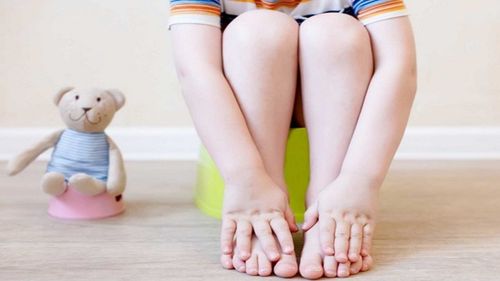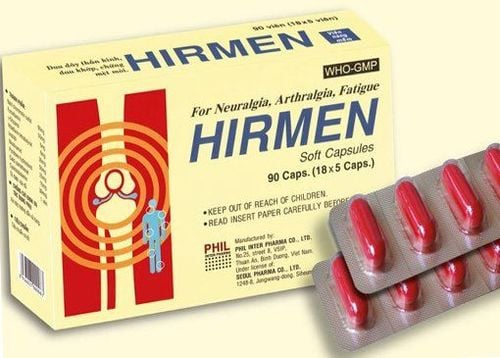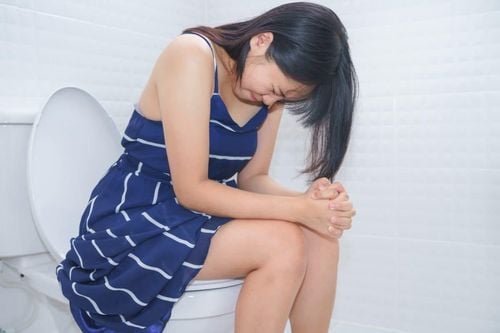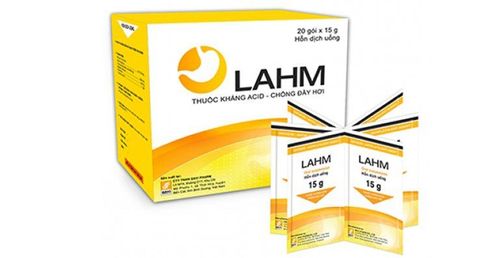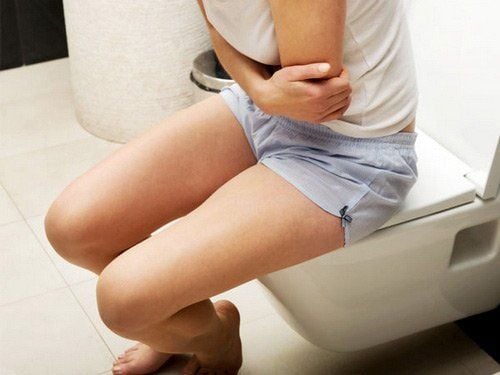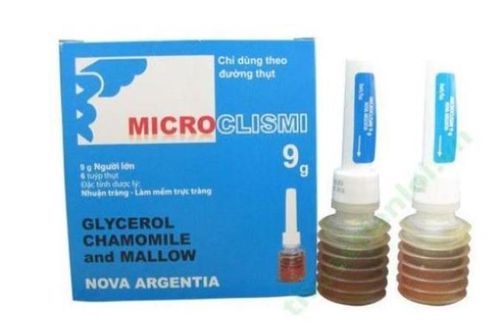This is an automatically translated article.
The article is professionally consulted by Master, Doctor Truong Thanh Tam - Pediatrician - Pediatrics - Neonatology Department, Vinmec Danang International General HospitalWhen treating chronic functional constipation in children, if changes in diet and lifestyle habits are not effective, medication should be used. However, the treatment process, how the regimen will depend on the age and degree of apples in the child.
1. What are the symptoms of chronic functional constipation in children?
When suffering from chronic functional constipation, the child's body is still healthy and normal and does not have any problems other than going to the toilet with difficulty. At different ages, the disease will have different manifestations, specifically:
Manifestations in infants and under 1 year old
Newborns will be diagnosed with functional constipation if they have the following signs:
Baby has not had a bowel movement for 3 days with bottle-fed babies and 1 week with exclusively breastfed babies. Dry, hard stools. Babies cry, strain and strain during bowel movements. Manifestations in children over 1 year old
For children over 1 year old, functional constipation will be diagnosed if at least 2 of the following symptoms are present:
Passing stools less than 3 times/week (children from 12 - 24 months). Children over 2 years old should have a bowel movement less than 2 times a week. Dry, solid stools, difficult defecation. Pain during defecation. There is mucus or blood in the stool.
2. Treatment of chronic functional constipation in children
When treating functional constipation in children, parents need to pay attention to a few issues:
Be really patient, because constipation is a disease that cannot be treated and cured immediately.
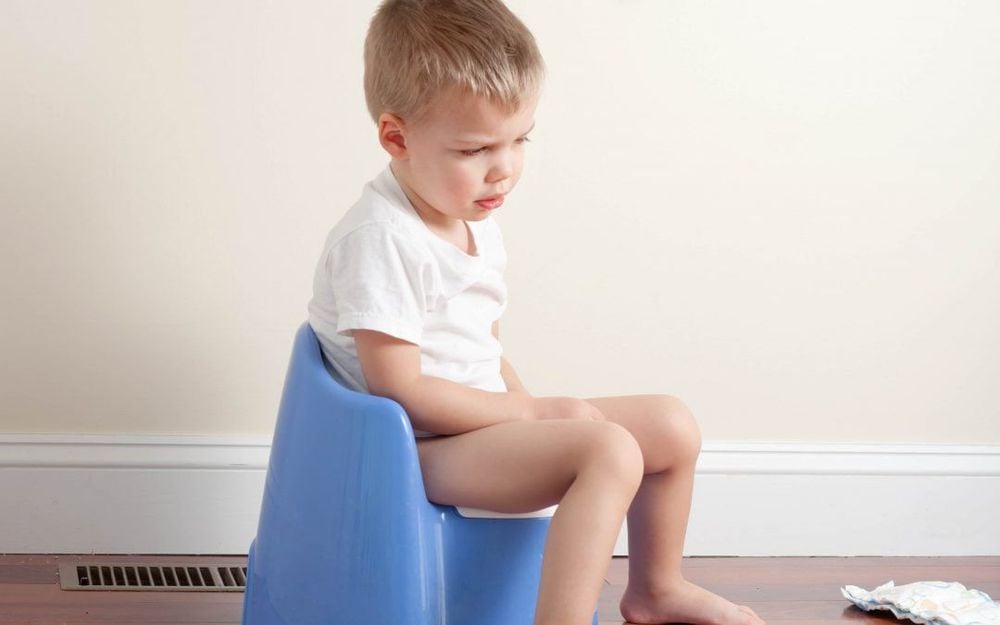
Treatment should be combined with a change in the child's diet and bowel habits. If necessary, consult a psychologist. Usually, when treating functional constipation in children, the doctor will base on the age and degree of constipation in the child, in case the exclusively breastfed baby shows signs of delay in defecation but the stools are still soft. This is normal and only needs to be monitored, if there is fecal stasis, it should be treated by removing / defecating immediately, when there is no stasis, it should be treated immediately.
Treatment of defecation / enema (based on children's conditions in Vietnam)
For children under 1 year old: Use glycerin rectally, enema with water (6ml/kg, maximum 135ml). Lactulose or sorbitol: 4ml/kg in 2 divided doses for 7 days. PEG 3350: 1/2- 1 pack/day. For children over 1 year old: Remove / defecate quickly by using glycerin rectally. Carry out enema 6ml/kg (max 135ml)/12-24h * 1-3 times. Coordination according to the course: Day 1 enema, day 2 use Bisacodyl 10mg rectally for 12-24 hours and day 3 use Bisacodyl 5mg for 12-24 hours. If necessary, repeat the 3-day course from 1-2 more times. Delayed defecation for children: Use Lactulose or sorbitol 4ml/kg divided into 2 times/day, treat for 7 days. Maintenance treatment:
Osmotic laxative: use Lactulose 10 mg/15 ml 1-3 ml/kg/day in 2 divided doses and Sorbitol 1-3 ml/kg/day in 2 divided doses. The dose of laxatives to treat functional constipation in children will be adjusted up or down depending on the nature of the stool. Parents need to work with their doctor to find the right dose for their child. Stimulating laxative: Using Bisacodyl 5mg: 1-3 tablets/day divided 1-2 times, however, stimulant laxatives should not be chosen immediately during maintenance therapy, but only used when constipation refractory, failure to laxative osmotic field. When maintenance therapy achieves results, it is recommended to continue treatment for at least 6 months and then reduce the dose slowly, absolutely do not stop suddenly.
In addition, when treating functional constipation, it is necessary to follow the principles of laxative use, which is to use within 6 consecutive months, increase or decrease the dose according to the nature of the stool (if the stool is hard, increase the dose and dilute it too much). then reduce the dose), use up to 4 packs per day, divided into 2 times. Once the appropriate dose has been obtained, it is necessary to maintain the drug continuously, not arbitrarily stop using it.
Children when treated for functional constipation may have diarrhea due to enteritis or a side effect of antibiotics, in this case, please contact your doctor to get the best treatment.
Laxatives can be used for a long time without causing any side effects, so parents absolutely must not quit when they see their children begin to pass normal stools. In parallel with the course of drug treatment, it is necessary to combine:
Training the right bowel habits for children, it is recommended to defecate 20-30 minutes after dinner. Help your baby feel comfortable by gently massaging his tummy in a clockwise direction. Do not scold the child when he or she accidentally pooped. Building a healthy diet, ensuring enough substances in daily meals, should choose viscous vegetables and fruits such as dragon fruit, papaya, banana, ...

In fact, children with chronic functional constipation often experience pain when trying to pass stool, even bleeding or tearing of the anus, so children tend to strain himself to keep the faeces to pass the gleaning. However, do not scold the child for that, help the child by making the stool soft so that the child can defecate more easily and no longer be afraid to defecate.
Currently, Vinmec International General Hospital is applying a treatment method for cases of constipation due to a decrease or loss of defecation reflex by anal electrical stimulation combined with interference waves, biofeedback training. (Biofeedback). The above method has helped more than 80% of patients recover the defecation reflex, improve bowel motility and bowel movement, and improve constipation.
Depending on the patient's constipation, the doctor will appoint necessary investigations such as: Colonoscopy with contrast, anorectal pressure measurement, assessment of bowel function and pathologies. related to the pelvic floor, ... to find the cause, thereby giving the optimal treatment regimen. Hundreds of patients of different ages have achieved the desired treatment results. The most important criterion to evaluate the success of treatment is that the patient has a regular daily bowel movement, easier to pass.
Please dial HOTLINE for more information or register for an appointment HERE. Download MyVinmec app to make appointments faster and to manage your bookings easily.





